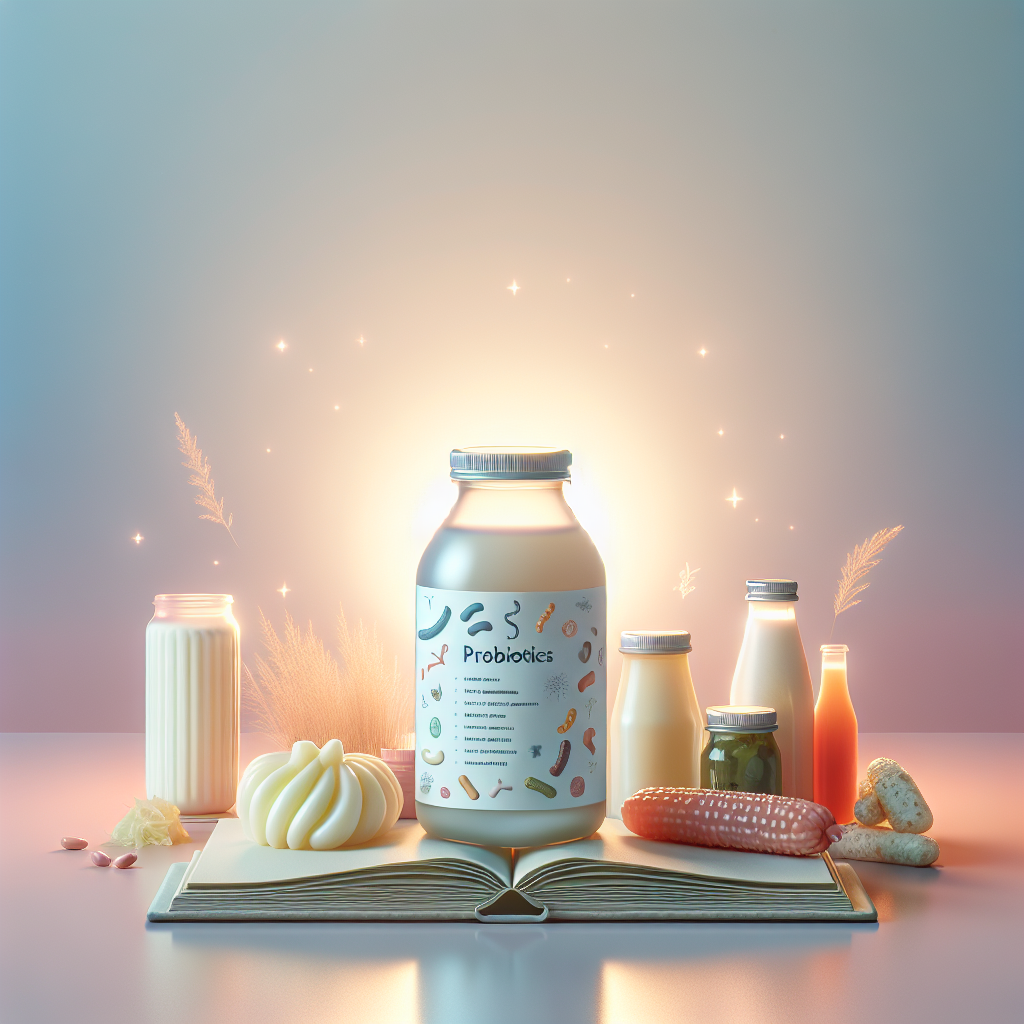### Unveiling the Health Perks of Probiotics: Deciphering Fact from Fiction
For many, the global health crisis has emphasized the importance of maintaining a robust immune response. As we navigate this terrain, a particular buzzword, “probiotics,” has captured the attention of health enthusiasts. But amidst the hype, what truth lies behind the probiotic craze?
### What are Probiotics?
Probiotics are live bacteria and yeasts beneficial for our digestive system. Though microbes often connote a negative connotation, our bodies house trillions of them – both good and bad. When the body is replete with health-promoting bacteria, it functions optimally. The microbial balance can be disrupted by factors like poor diet, stress, and medication. Enter probiotics – they help restore the balance, ensuring our gut flora remains healthy and diverse.
### Potential Health Benefits of Probiotics
Investigations into probiotics have generated substantial data, pinpointing an array of benefits. Here we bust some myths and list proven probiotic effects.
1. **Gastrointestinal Health**
Probiotics aid in several gut conditions, predominantly Irritable Bowel Syndrome (IBS), and diarrhea linked to antibiotics or infections. Specific strains like `Lactobacillus rhamnosus` and `Saccharomyces boulardii` can reduce the duration and intensity of diarrhea.
2. **Mental Health**
The gut-brain axis establishes two-way communication between the gut and brain. This groundbreaking new field of research, Psychobiotics, studies probiotic impact on mental health. Certain probiotics (`L. helveticus` and `Bifidobacterium longum`) can potentially alleviate stress, anxiety, and depression – though more research is warranted.
3. **Heart Health**
Certain `Lactobacillus` strains help reduce cholesterol levels. They break down bile, a naturally occurring fluid laden with cholesterol, in the gut. This prevents bile reabsorption into the bloodstream, aiding cholesterol reduction.
### Harnessing Probiotics: Foods and Supplements
Probiotics occur naturally in fermented foods. Yogurt, Sauerkraut, Kimchi, Kefir, and Kombucha tea are rich sources. As for probiotic supplements, they are potent and convenient but should be used considering the individual’s health status. Seek professional guidance to make an informed decision.
However, it’s important to note that probiotics are generally considered safe for most people. But individuals with weakened immune systems, protracted illnesses, or undergoing surgical procedures should be cautious, as probiotics could potentially lead to harmful infections.
### The Bottom Line
Science has propelled probiotics to the frontline of health discussions. Anecdotal and scientific evidence undeniably show that they contribute significantly to our well-being. Everyone can benefit from integrating probiotics into routine diet regimes. Yet, individual responses to probiotics can vary, reminding us that a one-size-fits-all approach to nutrition rarely applies.
Research is still unravelling the full potential of probiotics. The emergence of personalized probiotics, tailored to individual’s unique gut flora, beckons a future where specific health concerns could be mitigated via bespoke solutions. Until then, a diet rich in varied fermented foods could just be the step towards a healthier gut and happier you!
Disclaimer: Any claims in this article should not substitute for professional medical advice. Always consult with your healthcare provider before starting any new diet or supplement regimen.


